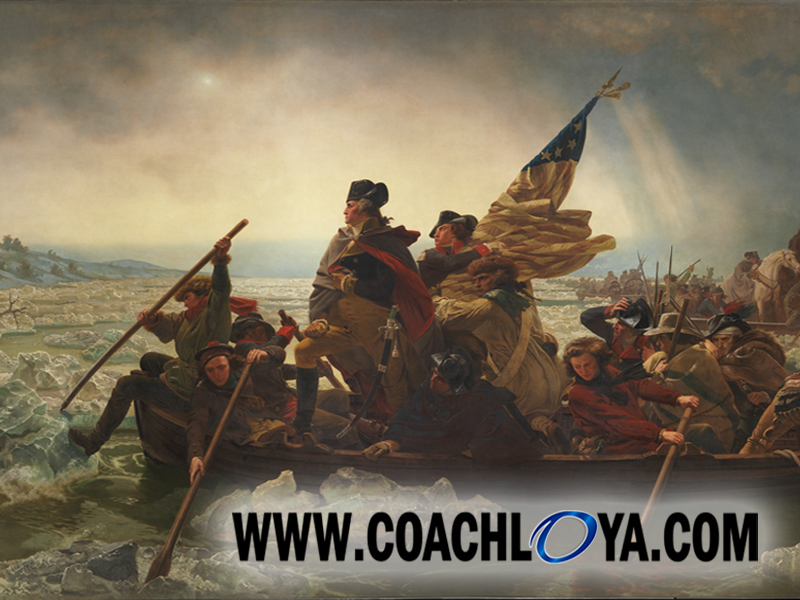In 1941, the United States federal government officially designated July 4th as a national holiday, commemorating the signing of the Declaration of Independence.
Interestingly, five months after representatives from the 13 original colonies signed Thomas Jefferson’s now famous document, the idea of achieving independence had become what most believed to be a hopeless cause. Depleted resources, deserting troops, and a series of lost battles had the Continental Army on the brink of collapse.
But a sequence of good teammate moves seemed to turn the tide in the Continental Army’s favor and forever altered the course of history.
The first good teammate move came by way of Thomas Paine’s publication of The American Crisis. The collection of essays was written to inspire support for the Continental troops and the movement toward independence. George Washington found the first essay to be so inspirational that within days of it being published, he ordered it read to his soldiers.
In the first essay, Paine wrote:
“These are the times that try men’s souls; the summer soldier and the sunshine patriot will, in this crisis, shrink from the service of his country; but he that stands it now, deserves the love and thanks of man and woman.”
With those words, he captured the essence of being a good teammate—you remain committed even when times get tough. Too many teammates are summer soldiers and sunshine patriots when their teams are winning, but become self-serving individuals when their teams start to struggle.
Paine risked persecution by publicly voicing his strong opinions. His willingness to courageously share his thoughts was a good teammate move, and so was his willingness to share his writing talents.
Washington’s willingness to share the essay with the troops was another good teammate move. It was his way of showing them how much their general cared.
The American Crisis did precisely what it was intended to do. It boosted morale and led to an increase in recruits joining the Continental Army, which contributed to Washington having sufficient means to achieve a pivotal victory a few days later at the Battle of Trenton.
A good teammate move on the part of a local militia also contributed to Washington’s victory at the Battle of Trenton. The militia’s commander was ill and most of his volunteers were either also ill or wounded when they attacked the Hessian and British soldiers during what would become known as the Battle of Iron Works Hill.
Though greatly outnumbered and physically outmatched, the small militia’s selfless act drew the Hessians far enough south to where the Hessians could not return in time to help defend the Trenton garrison against Washington’s surprise attack.
The militia’s good teammate move set up what some historians consider to be the greatest military feat of the American Revolution—Washington crossing the Delaware River.
In a risky nighttime maneuver, Washington successfully moved several thousand troops across the dangerous, icy river. He caught the British off guard and attacked the Trenton garrison at daybreak on December 26, 1776. The victory allowed the Americans to replenish their supplies and gave them a newfound level of momentum.
If there is an overarching good teammate lesson to be learned from this sequence of events, it is this: Sometimes you have to cross the river.
On many occasions in our lives, we are faced with situations on our teams where we must choose to cross the metaphorical river. These are situations like confronting a toxic teammate. Or, confronting our fear of repercussions that may come from us taking an unpopular stance on a controversial issue.
When faced with these kinds of situations, you cannot allow yourself to remain safely on the river banks—you must cross the river.
Once you’re involved, you cannot allow yourself to get caught up in the current. You must resist the temptation to go with the flow. You must fight the current, the ice, and all of the other challenges that will come at you and remain true to your good teammate objective of crossing the river.
Like the soldiers from the Battle of Trenton, you’ll find there are individuals who are willing to make good teammate moves to help you cross the river.
They will share because they know you care.
The key to finding independence from the things that are holding your team back is often found in your willingness to cross the river.
As always…Good teammates care. Good teammates share. Good teammates listen. Go be a good teammate.
*Photo: Washington Crossing the Delaware a painting by Emanuel Leutze, 1851 (The Metropolitan Museum of Art)






Trackbacks/Pingbacks